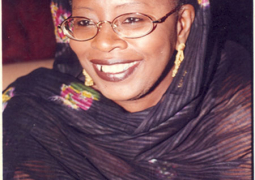For instance, the cry of the people of Bundung still seemed not to have reached the authorities, especially the Department of Water Resources.
The problem of water shortage is felt not only by the people of Bundung. Many residents in different areas across the Greater Banjul area and its environs are also facing similar water shortage constraints.
Many are seriously suffering trying to get water. Some are having sleepless nights trying to wait to see if there will be drops of water in the middle of the night, when the flow of water would seem to be much faster.
Yet some would sleep and wake up in the middle of night just to find no drops of water from their taps at all.
Some have to resort to making use of stale or impure water, when there is no water.
This challenge has to be overcome somehow, because life does not exist without water.
Proper sanitation and hygiene also demands good water in a living environment.
According to an African survey or study published recently, the problem of water has been a daunting task for many governments in Africa, giving rise to many people on the continent going with inadequate water and improper sanitation.
The new report, titled “Lack of safe water, sanitation spurs growing dissatisfaction with government performance,” was compiled by Afrobarometer, which stated that almost half of Africans go without enough clean water for home use, and a majority have to leave their compounds in order to access water.
Afrobarometer is a pan-African, non-partisan research network. It has been conducting public surveys on socio-economic conditions of people as well as issues of democracy and governance across more than 30 countries in Africa.
Key findings of the report stated that across 36 countries, almost half (45%) of respondents say they went without enough clean water at least once during the previous year. One in five of respondents did so “many times” or “always.”
The report also stated that a majority of Africans can only access water outside of their compound.
More than one-third of surveyed communities have no infrastructure for piped water, and more than two-thirds lack sewerage infrastructure.
It also stated that rural residents have far less access to water and sanitation than their urban counterparts.
The report pointed out that water supply ranks fifth among important problems that citizens say their governments must address, whilst in some countries it is the number one problem.
The survey further stated: “A majority (55%) of African citizens rate their government’s handling of water supply as ‘fairly bad’ or ‘very bad’.”
Given the situation and the importance of water to human existence – drinking, food, health, sanitation and the environment - it is of serious concern that more attention is paid to ensuring communities in our country have access to adequate and clean water.
“Life does not exist without water”
The Point


